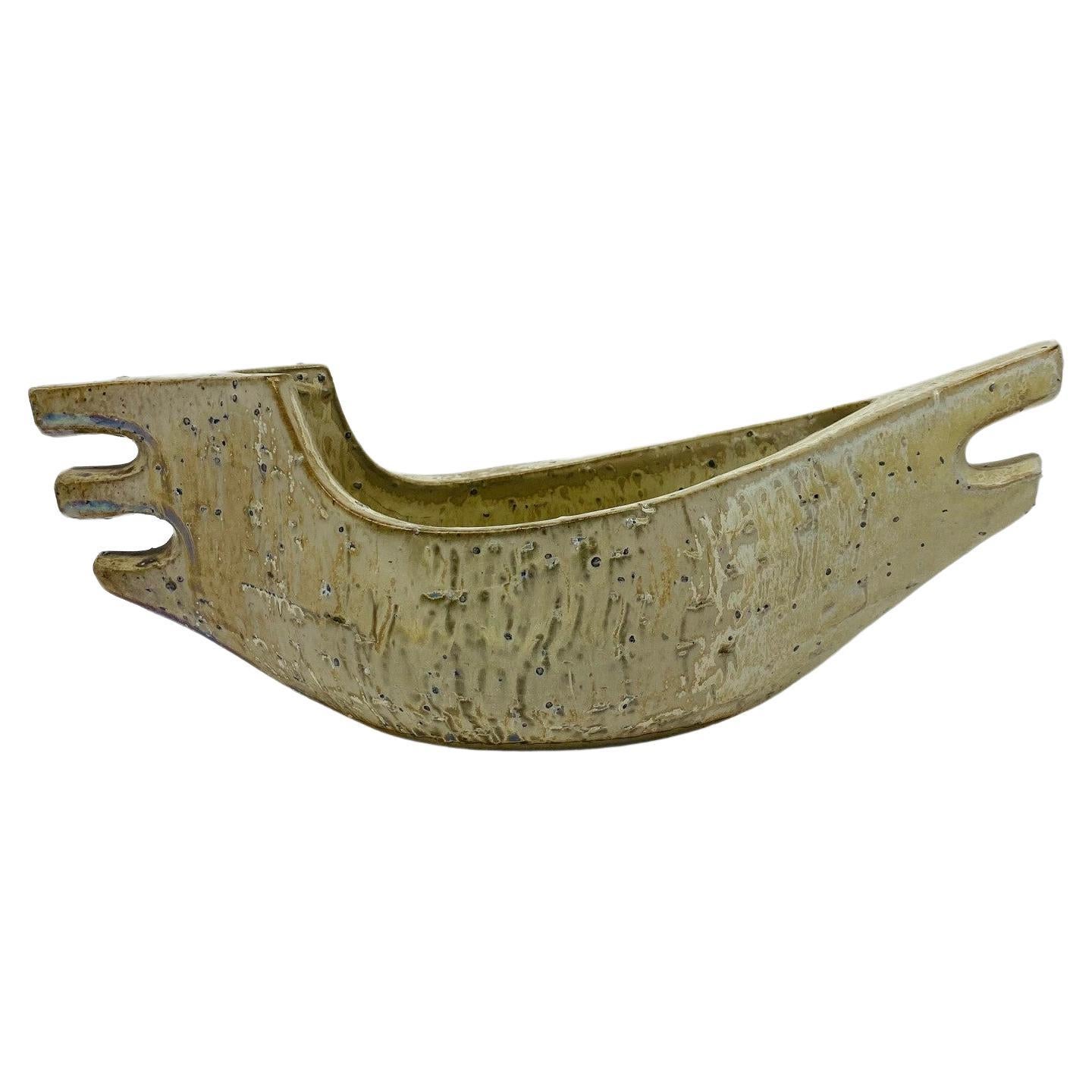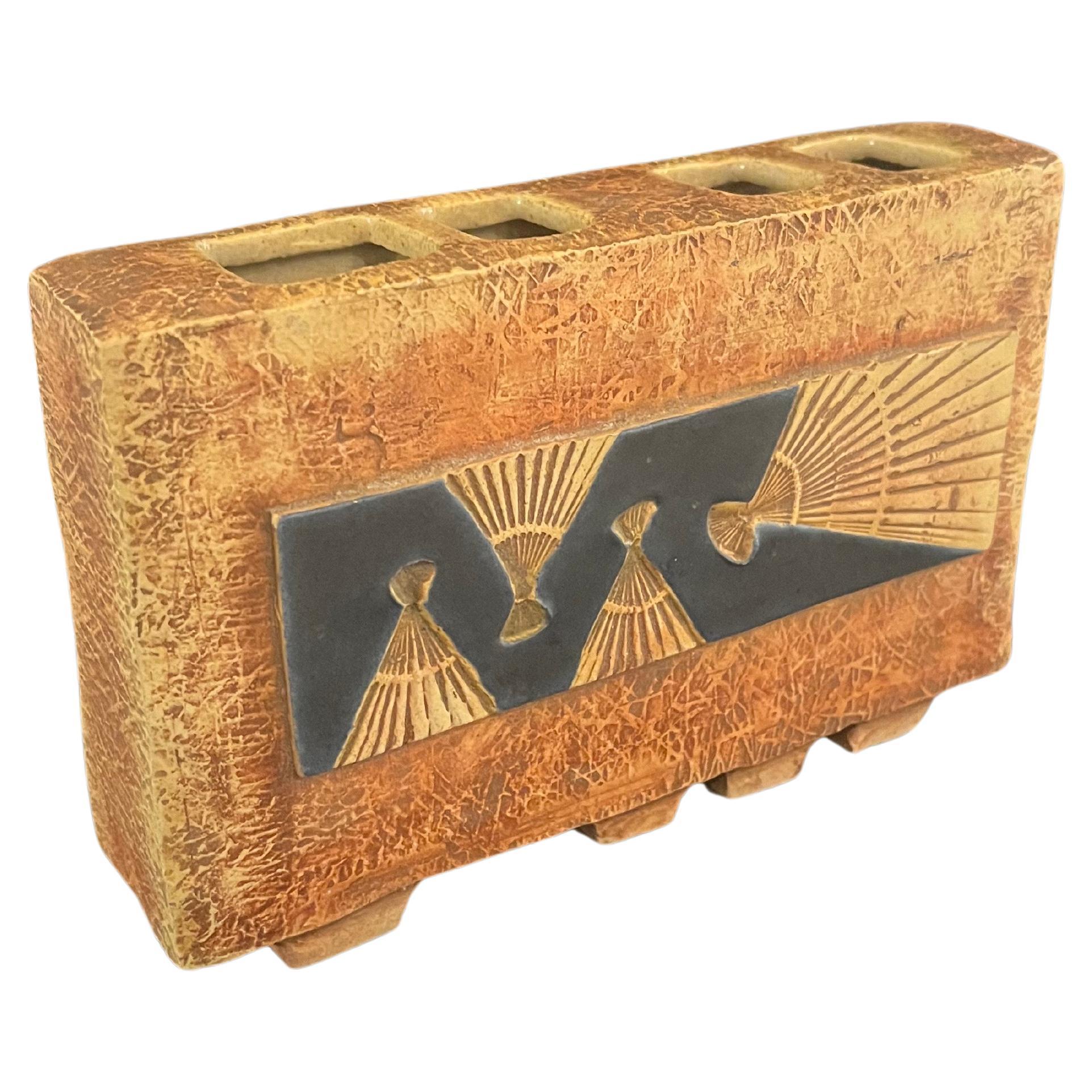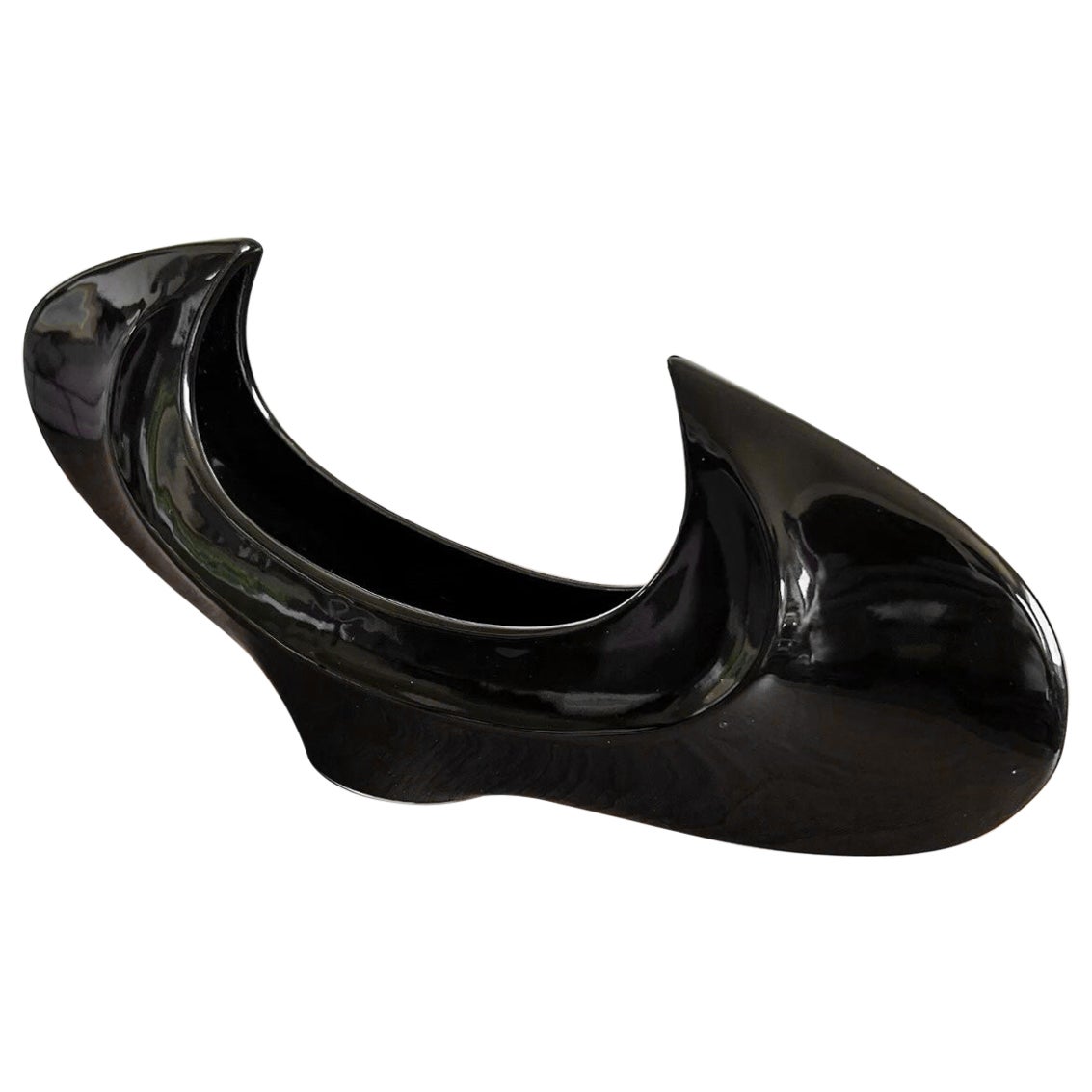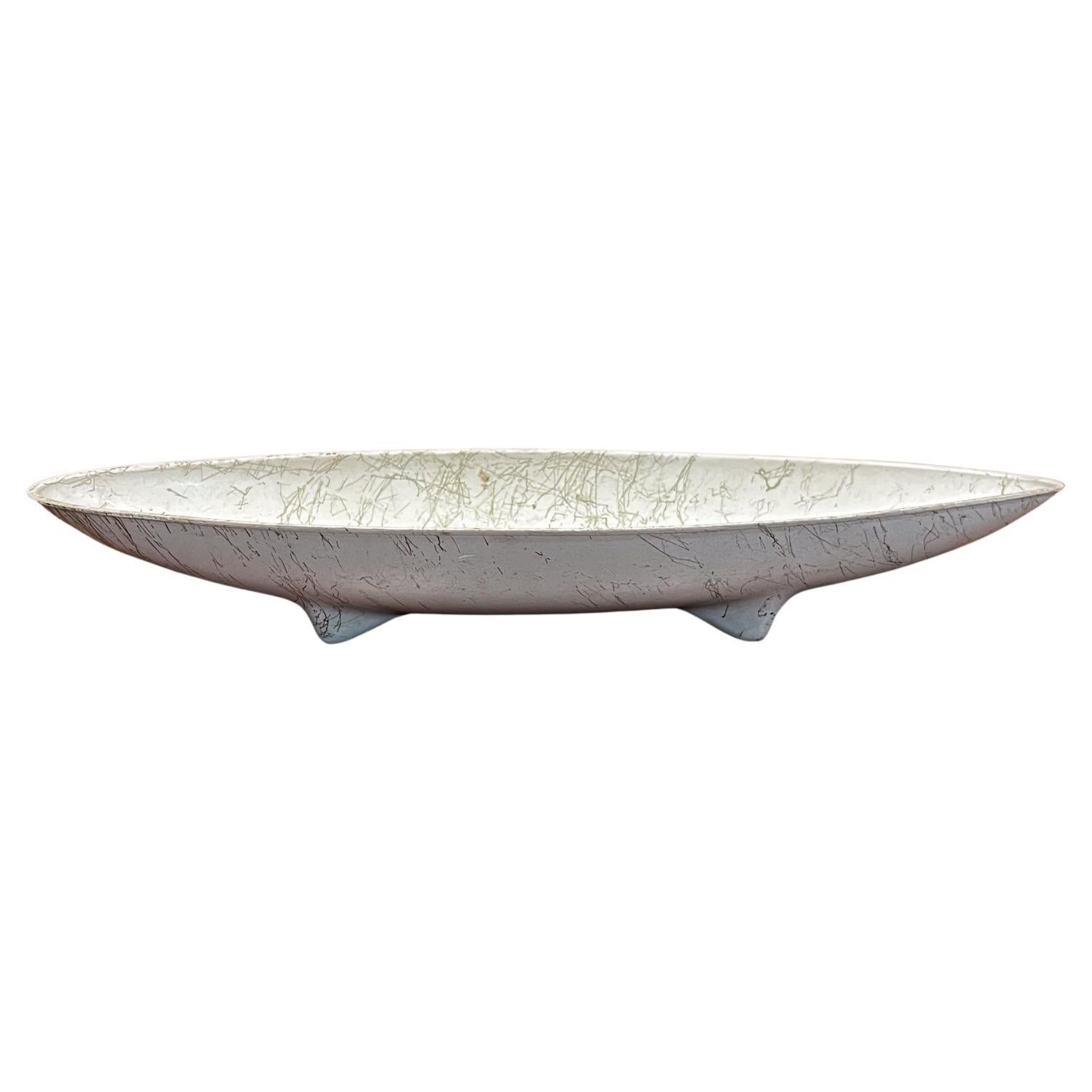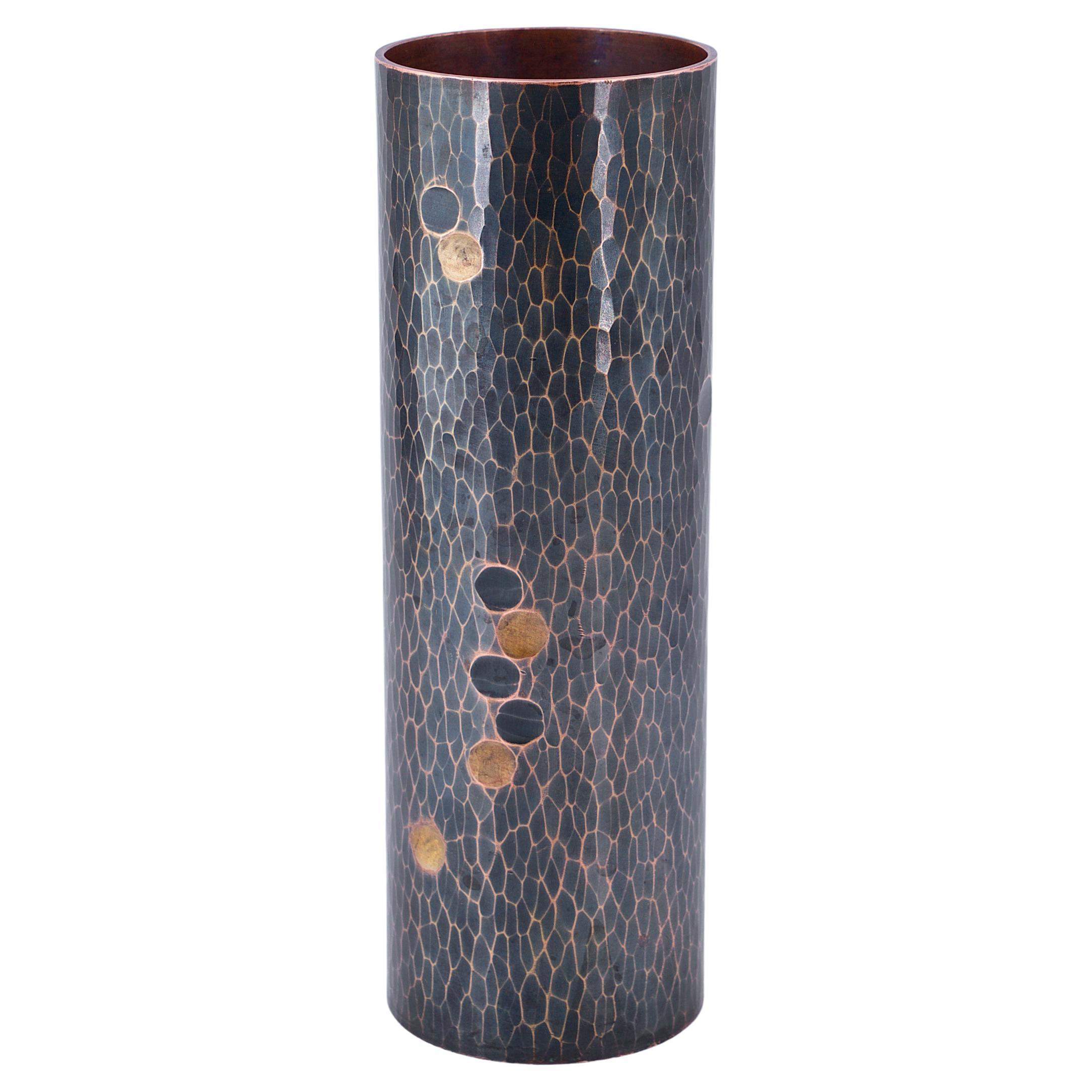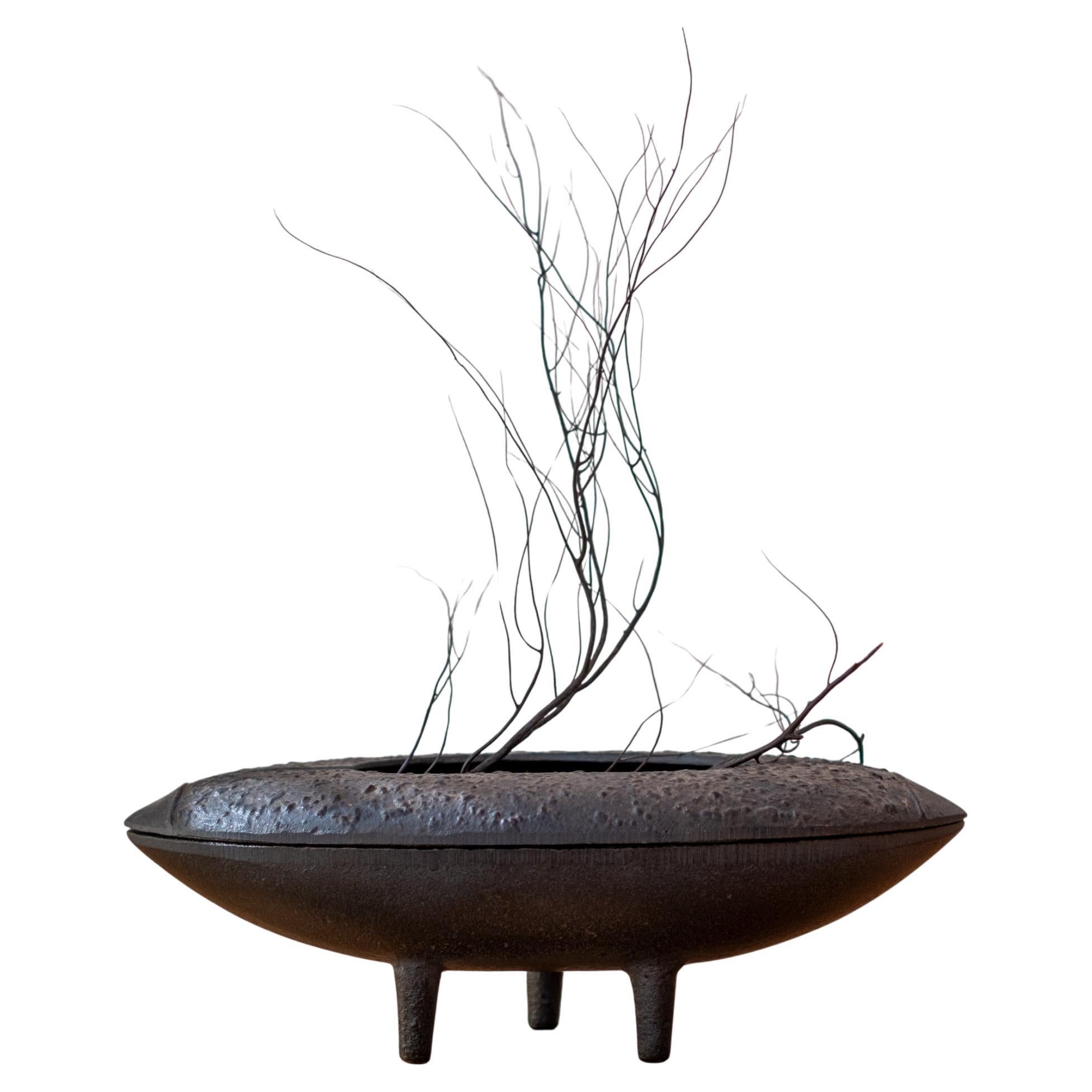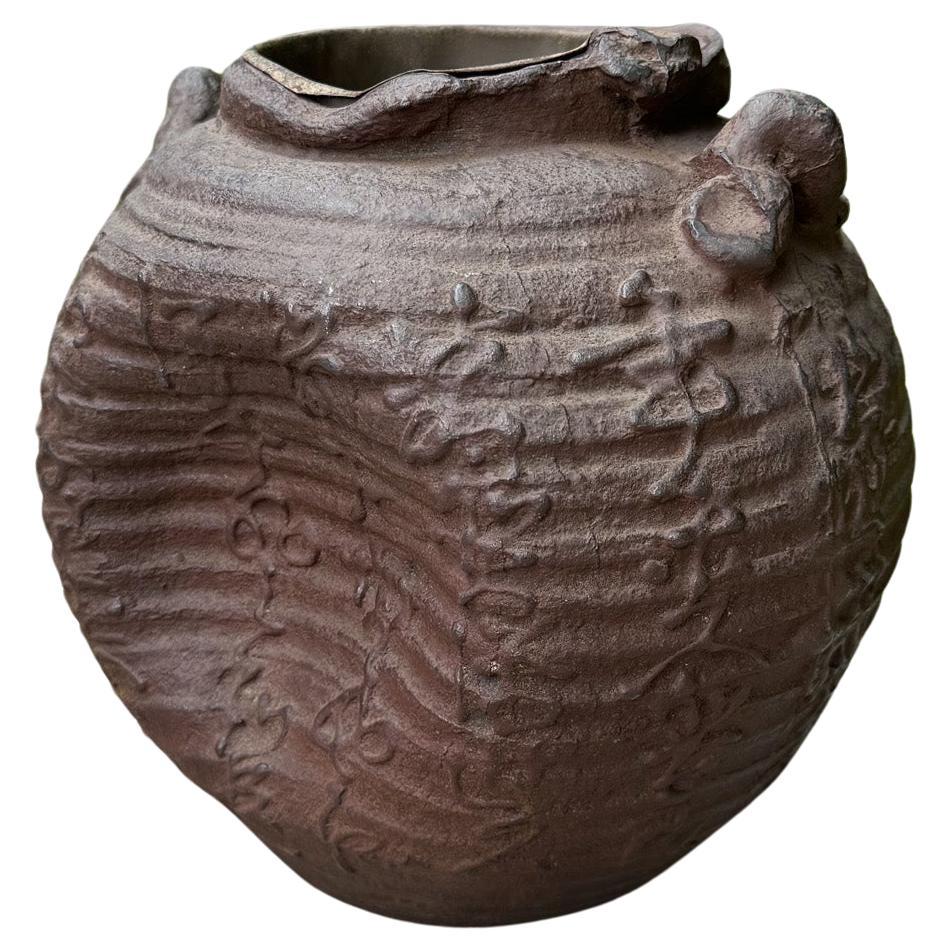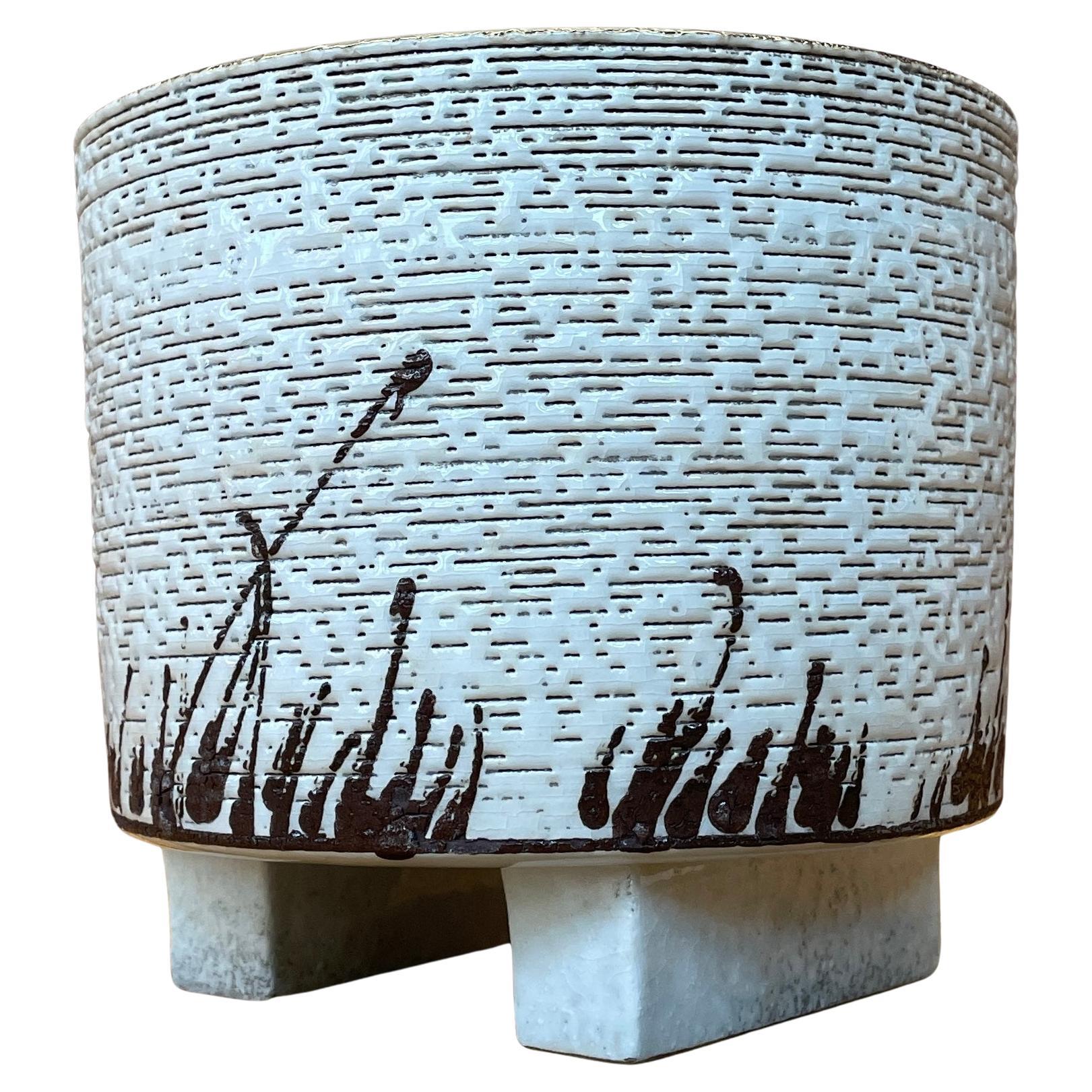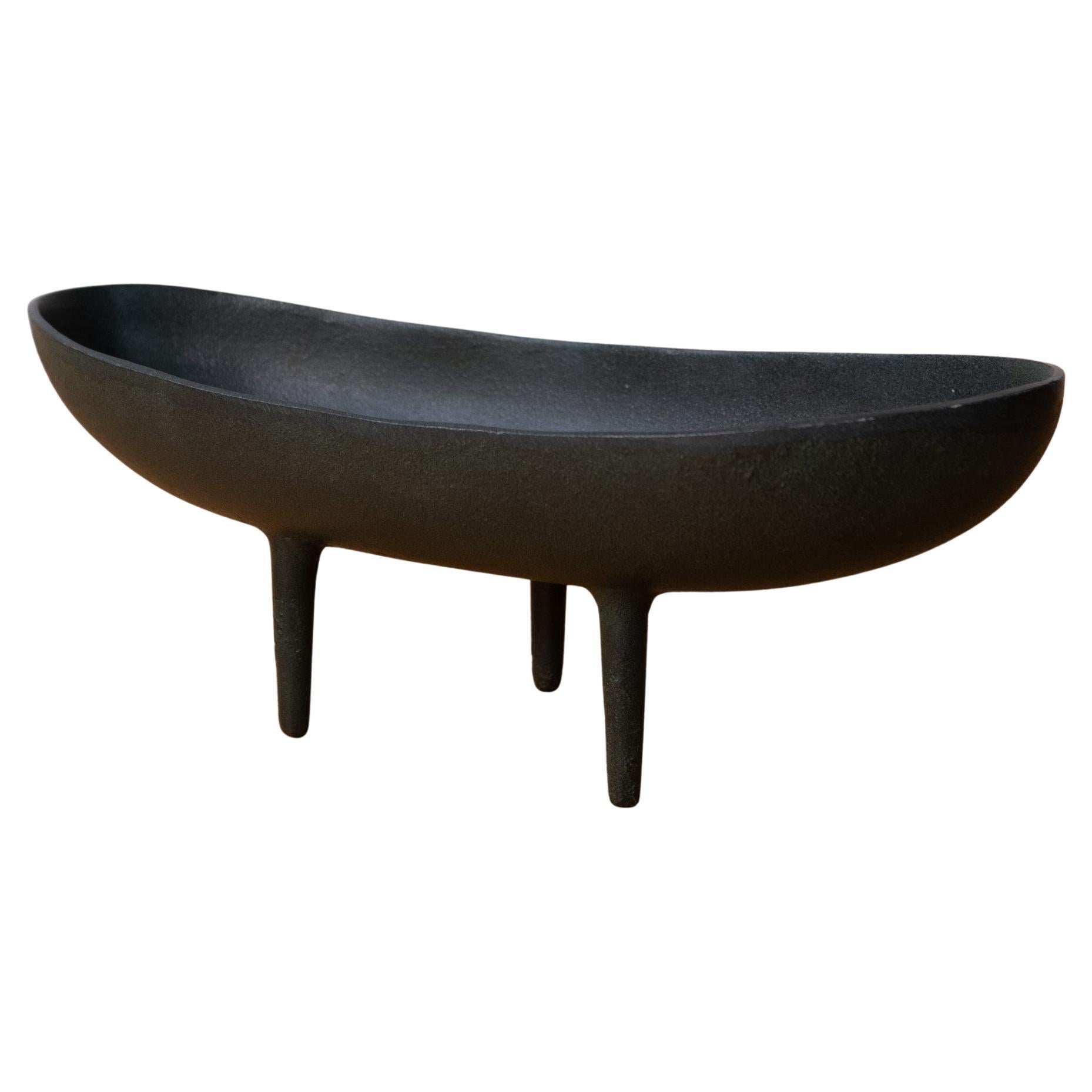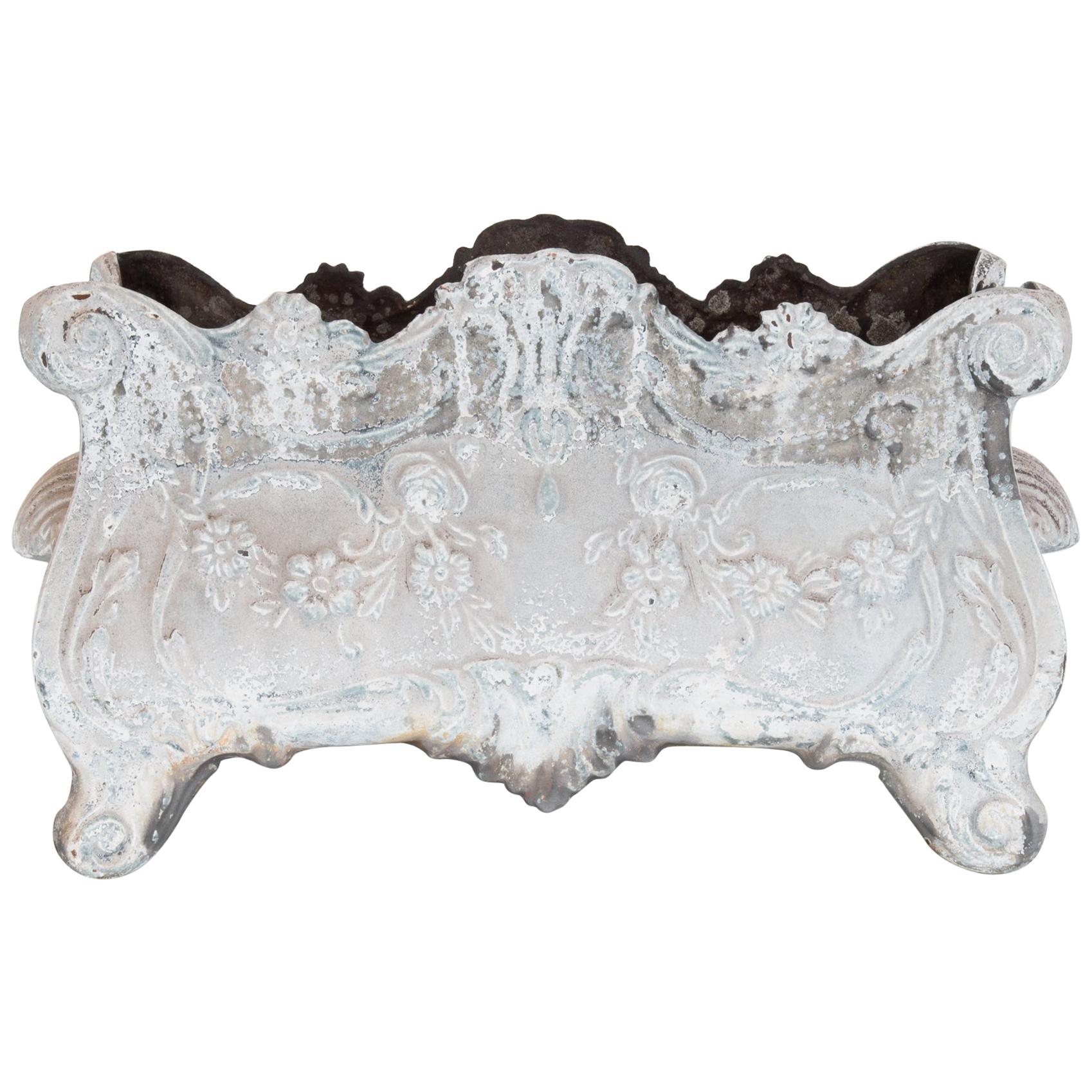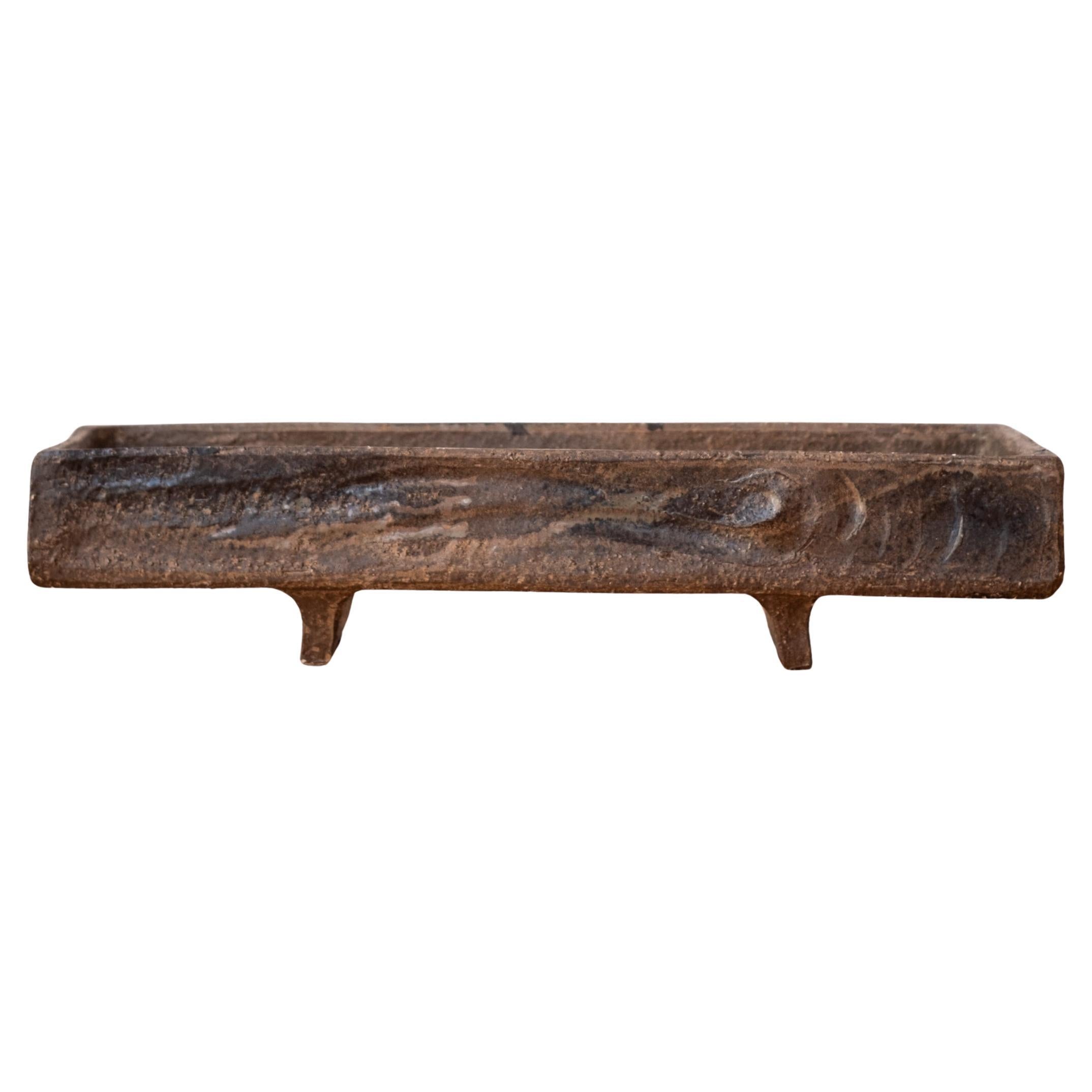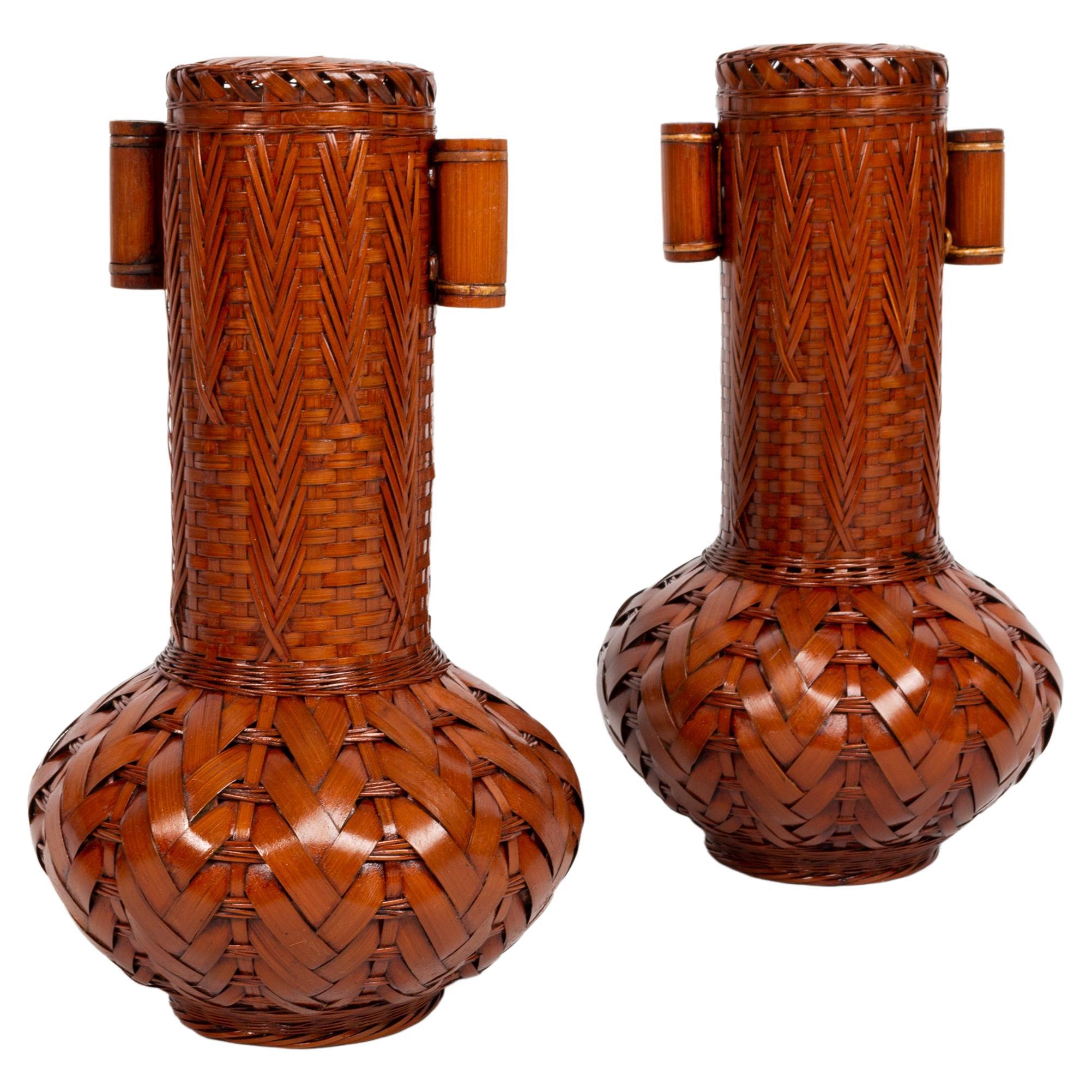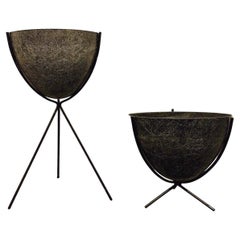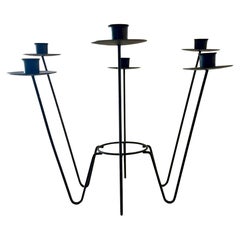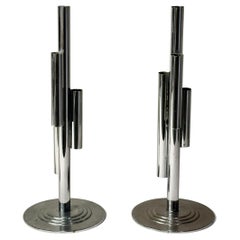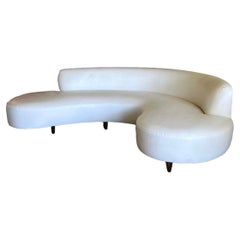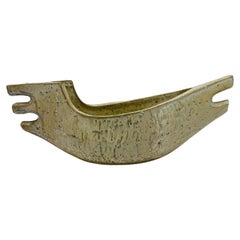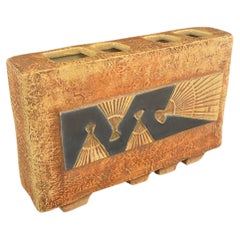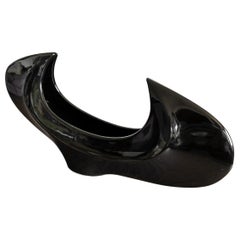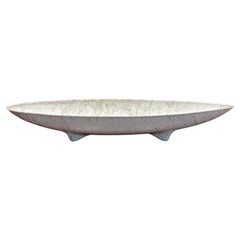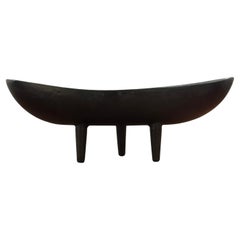
Nanbu Japan Cast Iron Ikebana Footed Vase / Planter ca 1950s/60s
View Similar Items
Want more images or videos?
Request additional images or videos from the seller
1 of 13
Nanbu Japan Cast Iron Ikebana Footed Vase / Planter ca 1950s/60s
About the Item
- Similar to:Isamu Noguchi (Designer)
- Dimensions:Height: 4 in (10.16 cm)Width: 10.13 in (25.74 cm)Depth: 4.38 in (11.13 cm)
- Style:Organic Modern (Of the Period)
- Materials and Techniques:Iron,Cast
- Place of Origin:
- Period:
- Date of Manufacture:Circa 1950s/60s
- Condition:Wear consistent with age and use. Cast iron ikebana is in immaculate condition. Original box has expected wear with dents and cuts in the box, along with tape residue,.
- Seller Location:Cathedral City, CA
- Reference Number:Seller: OC 92271stDibs: LU8352240563922
About the Seller
5.0
Vetted Professional Seller
Every seller passes strict standards for authenticity and reliability
Established in 2000
1stDibs seller since 2023
17 sales on 1stDibs
Authenticity Guarantee
In the unlikely event there’s an issue with an item’s authenticity, contact us within 1 year for a full refund. DetailsMoney-Back Guarantee
If your item is not as described, is damaged in transit, or does not arrive, contact us within 7 days for a full refund. Details24-Hour Cancellation
You have a 24-hour grace period in which to reconsider your purchase, with no questions asked.Vetted Professional Sellers
Our world-class sellers must adhere to strict standards for service and quality, maintaining the integrity of our listings.Price-Match Guarantee
If you find that a seller listed the same item for a lower price elsewhere, we’ll match it.Trusted Global Delivery
Our best-in-class carrier network provides specialized shipping options worldwide, including custom delivery.More From This Seller
View AllKimball USA Pair Fiberglass Bullet Planters on Iron Stands, ca 1950s
By Kimball Manufacturing Co.
Located in Cathedral City, CA
Kimball USA Pair Fiberglass Bullet Planters on Iron Stands, ca 1950s
Charcoal gray fiberglass bullet shaped planters sit into iron tripod stands as shown.
These classic bullet plan...
Category
Mid-20th Century American Mid-Century Modern Planters and Jardinieres
Materials
Iron
Midcentury Iron 6 Candle Candelabra, ca 1950s
Located in Cathedral City, CA
Midcentury Iron 6 Candle Candelabra, ca 1950s in the style of some of Van Keppel-Green's work in California in the 50s and 60s.
Composed of wrought iron rods bent and welded with si...
Category
Mid-20th Century American Mid-Century Modern Candelabras
Materials
Iron
American Deco Pair Chrome Bud Vases, ca 1930s
By Chase Brass and Copper Company
Located in Cathedral City, CA
American Deco Pair Chrome Bud Vases, ca 1930s
Unmarked, therefore listed as "in the style" of Chase and Co.
Original vintage condition and expected wear. Some scratches throughout ...
Category
Early 20th Century American Art Deco Vases
Materials
Metal, Steel, Chrome
Biomorphic Serpentine Sofa, ca 1950s
Located in Cathedral City, CA
This is a beautiful sofa in a biomorphic shape emblematic of the designs of the 1950s. Although no labels are present as the sofa has been reupholstered in the past, the dimensions a...
Category
Mid-20th Century American Mid-Century Modern Sofas
Materials
Upholstery, Naugahyde, Foam, Walnut
Karim Rashid for Leonardo Germany Limited Edition New Move Glass Vase, ca 1999
By Karim Rashid
Located in Cathedral City, CA
Karim Rashid for Leonardo Germany Limited Edition New Move Silver Glass Vase, ca 1999.
Measures 8” high, base 3-1/2” wide, and mouth 2-1/4” wide.
There is a small scratch of silver finish/coating on glass (we've posted an image of the interior and exterior at the area of the scratch). There is also a faint area of small blemishes at the base See images for more detail.
If there’s one thing karim rashid hates, it’s trophies. The 40-year-old designer has more than 40 of them, from big international ones like the 1999 George Nelson Award (given for breakthrough furniture design), to quaint little Canadian ones like Designer of the Year 2001. “It came with a little pin,” says Rashid, “and a … a … very nice …” He tries to describe the shape of the award with his hands but gives up. “It’s time that whole trophy thing changes. It’s kitsch. They’re functionless things.” Rashid was asked to design one for the DaimlerChrysler Design Awards (he’s a past recipient). “I was going to make it electro-luminescent. When the lights go out, it has a sensor so it turns on,” he says. But the trophy-as-night-light, a reminder of one’s worth in the darkest hours, didn’t impress Chrysler’s people. He never heard back.
They may well be gnawing their knuckles over that decision right now because Rashid’s conquest of the realm of product design is all but complete. A lush and suitably worshipful retrospective of his work, Karim Rashid: I Want to Change the World (Thames & Hudson; 249 pages), hits Australasian bookstores this month. There was a crowd around anything with his stamp on it-including stools, chess sets and storage units-at the recent International Contemporary Furniture Fair in New York City. More than 2 million North Americans are throwing their rubbish into a receptacle he designed, while 750,000 or so park their rears on one of his cheapo plastic chairs. It’s not just in North America. He has been dubbed Der Poet des Plastiks by a retailer in Germany and the prolifico progettista Americano by Interni magazine in Italy.
Trophies he may despise, but accolades Rashid can handle. The problem with being the Most Famous Industrial Designer in All the Americas is that you’re still less famous than someone who got kicked off Survivor the first week. Most people cannot name the designer of one nonclothing item in their homes. Rashid, who was born in Egypt, raised in Canada and is living in New York City, is more than happy to bring an end to this anonymity. Not just because he wants to be famous, although there seems to be that, but because he believes design should be a bigger part of the social discourse. “I have been almost alone in this country, trying to make design become a public subject,” he says.
His chief method of persuasion is to make the banal better so that people notice design more. He likes creating expensive furniture and perfume bottles just fine, but what really gets his juices going is the everyday: manhole covers, a cremation urn, disposable cigarette lighters, garbage bins, salt and pepper shakers, plastic pens. “I want American Standard to come to me to do the toilets for Home Depot,” he says.
In many ways Rashid is more like an itinerant industrial evangelist than a designer. He traveled 200 days last year. He claims to have been to every major mall in America, where he signs his products in high-end design stores and trolls about observing humans interacting with the objects around them. He has taught at design schools for more than a decade, and his work has been in 11 art shows in the past eight months. But mostly he has proselytized the corporate barbarians. And like any good missionary, he has learned to speak the language of his converts. One of the first things he does when he gets new clients is tour their factories to understand their manufacturing capacity. He also visits the retail outlets to see how the product might be displayed. And he really knows how to sell, especially himself. “I work with a guy in L.A.,” says Rashid, declining to name him. “He made a lot of really bad furniture. His business was hand-to-mouth. I proposed seven or eight projects. The pieces I’ve done for him have already become iconic.” The subtitle of his monograph, I Want to Change the World, is not ironic, just characteristically immodest.
“Most industrial-design studios try to interpret a client’s needs and come up with a style,” says Paul Rowan, co-founder of housewares manufacturer Umbra. “Karim has his own personal vision.” It helps that Rashid’s vision incorporates things that Rowan needs, like a design that will stack and ship easily and that creates little waste in the making.
Rashid’s father was a set designer for Canadian TV who rearranged the family furniture every Sunday. So perhaps it was ordained that Karim would grow up to become one of the pioneers in non-cheesy plastic, making objects that have energy and personality but aren’t wacky. He, like many of his generation, has championed the could-only-be-designed-with-computers blob. But his is not just a blob for its own sake. His Oh Chair...
Category
1990s German Minimalist Vases
Materials
Blown Glass
Marc Bellaire Balinese Ceramic Covered Dish California ca 1950s
By Marc Bellaire
Located in Cathedral City, CA
Marc Bellaire Balinese Ceramic Covered Dish California ca 1950s. This is a fabulous and colorful hand-painted designed ceramic dish that could be used on a dresser to store trinkets ...
Category
Vintage 1950s American Mid-Century Modern Ceramics
Materials
Ceramic, Paint
You May Also Like
Mid-Century Modernist Ikebana Vase, Japan 1950s
Located in San Diego, CA
Modernist Ikebana vase with a vessel structure and textured surface. Unknown signature in bottom. Japan, 1950s.
Mid-Century, Hollywood Regency, Art Deco, Eclectic, Coastal, Modern,...
Category
Vintage 1950s Japanese Mid-Century Modern Vases
Materials
Clay
Mid-Century Modernist Ikebana Vase, Japan 1950s
Located in San Diego, CA
Modernist Ikebana vase with multiple openings and a textured surface. nice colors signed on the side.
Category
Vintage 1950s Japanese Mid-Century Modern Vases
Materials
Clay
70s Huge Mid Century Modern Sculpture Japanese Crescent Ikebana Planter Vase
By Isamu Noguchi
Located in St.Petersburg, FL
70s Huge Mid Century Modern Sculpture Japanese Crescent Ikebana Planter Vase
Spectacular Large Mid Century Modern Gloss Black Toyo Sculptural Planter, Vase or Table top Centerpiece...
Category
Mid-20th Century Japanese Mid-Century Modern Vases
Materials
Ceramic, Porcelain
1960s White Ikebana Footed Boat Vase Japanese
Located in Chula Vista, CA
1960s White Ikebana Footed Boat Vase Japanese
16.5 long x 5 w x 2.5
Original vintage condition.
See images provided.
Category
Vintage 1960s Mid-Century Modern Vases
Materials
Ceramic
1950s Japanese Bronze Vase Martele Hammered Polka-Dot Meiji Nanbu Mid-Century
Located in Hyattsville, MD
A fine vintage mid-century Japanese bronze and brass cylinder vase with a Martelé finish. Black patinated surface, polished ridges, and brass inlaid dots. Impressed maker’s mark on v...
Category
Vintage 1950s Japanese Arts and Crafts Vases
Materials
Brass, Bronze
$1,596 Sale Price
20% Off
Modernist Tripod Japanese Iron Ikebana Planter
By Isamu Noguchi
Located in San Diego, CA
Mid-Century Modernist iron Ikebana tripod planter from Japan. Wonderful patina. Includes a flower frog in the original box. It could also be used as an incense burner. Japan, 1950s
Category
Vintage 1950s Japanese Mid-Century Modern Decorative Bowls
Materials
Iron
